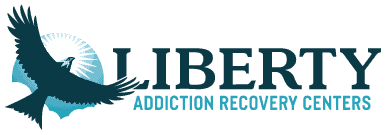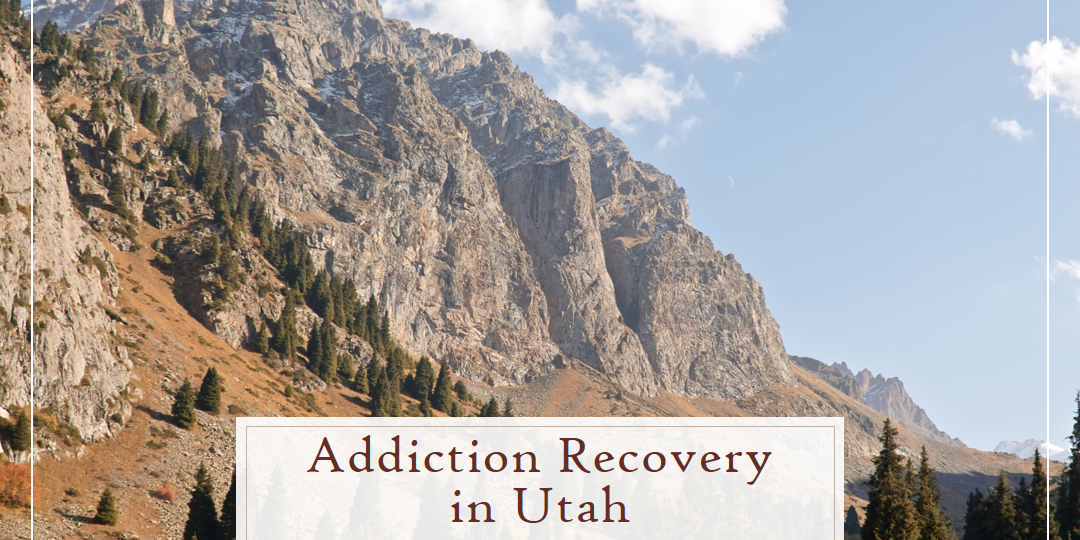Addiction Recovery Utah: Strategies for Maintaining Long-Term Sobriety in Utah
Addiction is a complex disease that affects millions of people worldwide. It can be challenging to overcome addiction, but with the right addiction recovery treatment, it is possible to achieve long-term recovery. There are several centers for addiction recovery in Utah and they offer a range of treatments, from detoxification and withdrawal management to therapeutic approaches and continuing care.
Choosing the right addiction recovery treatment in Utah is crucial to lasting recovery. With so many options available, it can be overwhelming to decide which treatment program is best for you or your loved one. It’s essential to consider factors such as the type of addiction, the severity of the addiction, and any co-occurring mental health disorders when selecting a treatment program.
Key Takeaways
- Choosing the right addiction recovery treatment in Utah is crucial to lasting recovery.
- Detoxification and withdrawal management are essential components of addiction recovery.
- Therapeutic approaches, relapse prevention, and continuing care are vital to maintaining long-term recovery.
The Importance of Choosing the Right Addiction Recovery Treatment in Utah
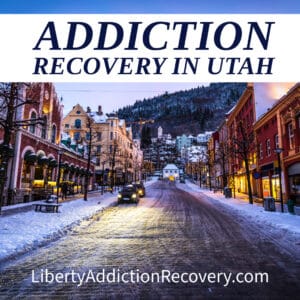 When it comes to addiction recovery, choosing the right treatment program is crucial. With so many options available in Utah, deciding which program best suits your needs can be overwhelming. In this section, we’ll discuss the different types of treatment programs and factors to consider when selecting a program.
When it comes to addiction recovery, choosing the right treatment program is crucial. With so many options available in Utah, deciding which program best suits your needs can be overwhelming. In this section, we’ll discuss the different types of treatment programs and factors to consider when selecting a program.
Types of Treatment Programs
There are several types of addiction recovery programs available in Utah. Here are some of the most common:
- Residential Treatment: This type of program involves living at the treatment facility for a period of time, typically 30-90 days. Residential treatment provides a structured environment and 24-hour support to help individuals overcome addiction.
- Outpatient Treatment: Outpatient treatment allows individuals to receive treatment while still living at home. This type of program is ideal for those with less severe addictions or those who have completed a residential program.
- Intensive Outpatient Program (IOP): IOPs are similar to outpatient programs but involve more frequent and intensive therapy sessions. This type of program is ideal for those who need more support than outpatient treatment but don’t require residential care.
Factors to Consider When Selecting a Program
When choosing addiction recovery in Utah, there are several factors to consider:
- Treatment Approach: Different programs use different treatment approaches, such as cognitive-behavioral therapy, 12-step programs, or holistic therapies. Choosing a program that aligns with your beliefs and values is important.
- Location: The location of the treatment facility can impact your recovery. Some people prefer to stay close to home, while others find getting away from familiar environments helpful.
- Cost: Addiction recovery programs can be expensive, so it’s important to consider the cost of treatment and whether your insurance will cover it.
- Staff Credentials: The staff at the treatment facility should be licensed and experienced in addiction treatment.
Choosing the right addiction recovery program can be a daunting task, but it’s essential for successful recovery. By considering the types of programs available and the factors to consider when selecting a program, you can make an informed decision that will set you on the path to a healthy, sober life.
Related Posts:
Detoxification and Withdrawal Management
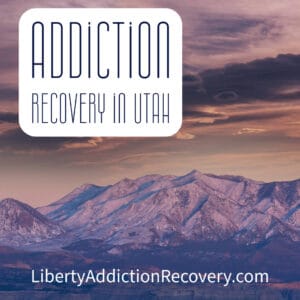 At our addiction treatment center in Utah, we understand that detoxification and withdrawal management are crucial steps in the recovery process. These steps help individuals safely and comfortably manage the physical symptoms of addiction withdrawal, which can be challenging and uncomfortable.
At our addiction treatment center in Utah, we understand that detoxification and withdrawal management are crucial steps in the recovery process. These steps help individuals safely and comfortably manage the physical symptoms of addiction withdrawal, which can be challenging and uncomfortable.
Detox
Detox is an essential step in addiction recovery in Utah, especially for those with severe addiction. This process involves the use of medication to manage withdrawal symptoms and ensure the safety of the individual. Detox is administered by licensed medical professionals who follow the most effective protocols for treating individuals.
At Liberty Addiction Recovery, we can help place you in a comprehensive detox that helps individuals manage their withdrawal symptoms safely and comfortably. Medical professionals are trained to provide personalized care to each individual, ensuring their unique needs are met. Call us to get you or your loved one placed in a Detox within 24 hours.
Coping with Withdrawal Symptoms
Withdrawal symptoms can be challenging to manage, both physically and emotionally. However, there are several strategies that individuals can use to cope with these symptoms. These strategies include:
- Engaging in physical activity, such as exercise or yoga, reduces stress and promotes relaxation.
- Practicing mindfulness and meditation to reduce anxiety and improve emotional well-being.
- Seeking support from family, friends, or a support group to reduce feelings of isolation and promote social connection.
- Taking prescribed medications as directed to manage withdrawal symptoms.
At our addiction treatment center in Utah, we offer a range of services to help individuals cope with withdrawal symptoms. These services include counseling, therapy, and support groups, which can provide individuals with the emotional support they need to manage their symptoms.
Related Posts:
Therapeutic Approaches to Addiction Recovery in Utah
When it comes to addiction recovery in Utah, several therapeutic approaches can be used to help individuals overcome their addiction and achieve long-term sobriety. These approaches can include individual therapy, group therapy, and family therapy.
Individual Therapy
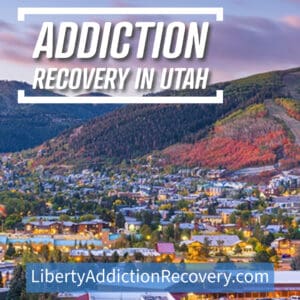 Individual therapy is a form of therapy where a person works one-on-one with a therapist to address their addiction and any underlying mental health issues that may be contributing to their addiction. This type of therapy can be particularly effective for individuals who may be hesitant to share their struggles with others in a group setting.
Individual therapy is a form of therapy where a person works one-on-one with a therapist to address their addiction and any underlying mental health issues that may be contributing to their addiction. This type of therapy can be particularly effective for individuals who may be hesitant to share their struggles with others in a group setting.
During individual therapy sessions, therapists may use a variety of evidence-based techniques, such as cognitive-behavioral therapy (CBT), dialectical behavior therapy (DBT), or motivational interviewing, to help individuals identify and change negative thought patterns and behaviors that may be contributing to their addiction.
Group Therapy
Group therapy is another common therapeutic approach used in addiction recovery in Utah. In group therapy, individuals work with a therapist and others who are also in recovery to discuss their experiences, share coping strategies and support one another.
Group therapy can be particularly effective for individuals who may feel isolated or alone in their addiction. It can also provide a sense of community and belonging, which can be helpful in maintaining long-term sobriety.
Family Therapy
Family therapy is a form of therapy where a person works with their family members to address the impact of addiction on the family unit. This type of therapy can be particularly effective for individuals whose addiction has caused strain or conflict within their family relationships.
During family therapy sessions, therapists may use a variety of techniques, such as systemic therapy or the family disease model, to help family members understand addiction and its impact on the family. They may also work with family members to develop strategies for improving communication and rebuilding relationships.
Overall, these therapeutic approaches can be effective in helping individuals overcome addiction and achieve long-term sobriety. By addressing the root causes of addiction and providing individuals with the tools and support they need to maintain their sobriety, we can help individuals reclaim their lives and achieve lasting recovery.
Related Posts:
Relapse Prevention and Continuing Care
Addiction recovery is a long-term process that involves more than just detoxification and therapy. One of the most critical aspects of recovery is relapse prevention. Relapse is a common occurrence in addiction recovery, and it can happen to anyone. Therefore, developing a relapse prevention plan is essential to help you stay sober.
Developing a Relapse Prevention Plan
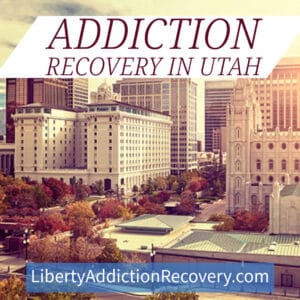 A relapse prevention plan is a personalized plan that outlines the steps you will take to avoid relapse. The plan should include triggers that may lead to relapse, coping strategies to deal with triggers and a list of people you can turn to for support. It is also important to create a list of activities you can do when you feel triggered, such as exercise or meditation.
A relapse prevention plan is a personalized plan that outlines the steps you will take to avoid relapse. The plan should include triggers that may lead to relapse, coping strategies to deal with triggers and a list of people you can turn to for support. It is also important to create a list of activities you can do when you feel triggered, such as exercise or meditation.
Many addiction treatment centers in Utah offer relapse prevention programs as part of their aftercare services. These programs can help you develop a relapse prevention plan and provide ongoing support to help you stay sober.
The Role of Aftercare Programs
Aftercare programs are an essential component of addiction recovery. These programs provide ongoing support and care to individuals who have completed a formal addiction treatment program. Aftercare programs can include group therapy, individual counseling, and support groups.
Aftercare programs can help you stay motivated and accountable in your recovery journey. They can also provide you with the tools and resources you need to maintain your sobriety over the long term.
At Liberty Addiction Recovery, we offer comprehensive aftercare programs to help our clients achieve long-term sobriety. Our aftercare programs include relapse prevention planning, individual counseling, and support group meetings.
Related Posts:
Advocacy and Support Resources in Utah
As we strive to help those in Utah who are recovering from addiction, it is important to know that there are many resources available to support them. This section will discuss some of the advocacy and support resources that can help individuals and families through the recovery process.
Local Support Groups
Local support groups are a great resource for individuals in recovery. They provide a safe and supportive environment where individuals can share their experiences, learn from others, and receive guidance and encouragement. In Utah, there are many local support groups available, including Alcoholics Anonymous (AA), Narcotics Anonymous (NA), and Utah Support Advocates for Recovery Awareness (USARA). These groups offer various services, including peer support, family support, and advocacy.
State-Funded Programs
In addition to local support groups, state-funded programs are available to support individuals in recovery. Some state-funded programs available include Utah Substance Use and Mental Health and the Utah Department of Health and Human Resources DSAMH.
DSAMH ASL from DHHS | SUMH E-Learning Team on Vimeo.
It is important to note that while these resources can be incredibly helpful, they are not a substitute for professional medical advice and treatment. If you or a loved one is struggling with addiction, we encourage you to seek professional help as soon as possible. With the right support and resources, recovery is possible.
Frequently Asked Questions – Addiction Recovery Utah
What types of therapeutic approaches are used in addiction recovery programs?
There are various therapeutic approaches used in addiction recovery programs, including cognitive-behavioral therapy, dialectical behavior therapy, and motivational interviewing. These approaches are designed to help individuals identify and change negative thoughts and behaviors that contribute to addiction. They also help individuals develop new coping skills to manage triggers and stressors that may lead to relapse.
How does family involvement impact the success of addiction treatment?
Family involvement is an important aspect of addiction treatment, as it can provide support and motivation for the individual in recovery. Family members can participate in therapy sessions and learn how to communicate effectively with their loved ones in recovery. This can help to rebuild trust and strengthen relationships, which can contribute to long-term success in recovery.

Salt Lake City, Utah
What are the typical steps in an addiction recovery plan?
The typical steps in an addiction recovery plan include detoxification, residential treatment followed by outpatient treatment, ongoing therapy and support, and aftercare planning. Detoxification is the process of removing drugs or alcohol from the body, often with the help of medication and medical supervision. Inpatient or outpatient treatment provides structured therapy and support to help individuals learn new coping skills and develop a relapse prevention plan. Aftercare planning helps individuals transition into their daily lives and provides ongoing support to prevent relapse.
How do support groups contribute to the recovery process?
Support groups, such as Alcoholics Anonymous and Narcotics Anonymous, provide a sense of community and support for individuals in recovery. These groups offer a safe space to share experiences and receive encouragement from others who have gone through similar struggles. Support groups can also provide a sense of accountability and motivation to stay sober.
What role does individual counseling play in treating addiction?
Individual counseling, also known as therapy, is an important part of addiction treatment. It provides a safe and confidential space for individuals to explore their thoughts and feelings surrounding addiction. Therapy can help individuals identify and change negative patterns of thinking and behavior that contribute to addiction. It can also help individuals develop new coping skills and strategies to manage triggers and stressors that may lead to relapse.
Can insurance plans provide coverage for addiction rehabilitation services?
Yes, many insurance plans provide coverage for addiction rehabilitation services. The level of coverage may vary depending on the specific plan and the type of treatment needed. It is important to check with your insurance provider to understand what services are covered and what out-of-pocket costs may be involved. Liberty Addiction Recovery Centers accepts popular Utah health insurance like, Aetna, SelectHealth, and BlueCross BlueShield.
